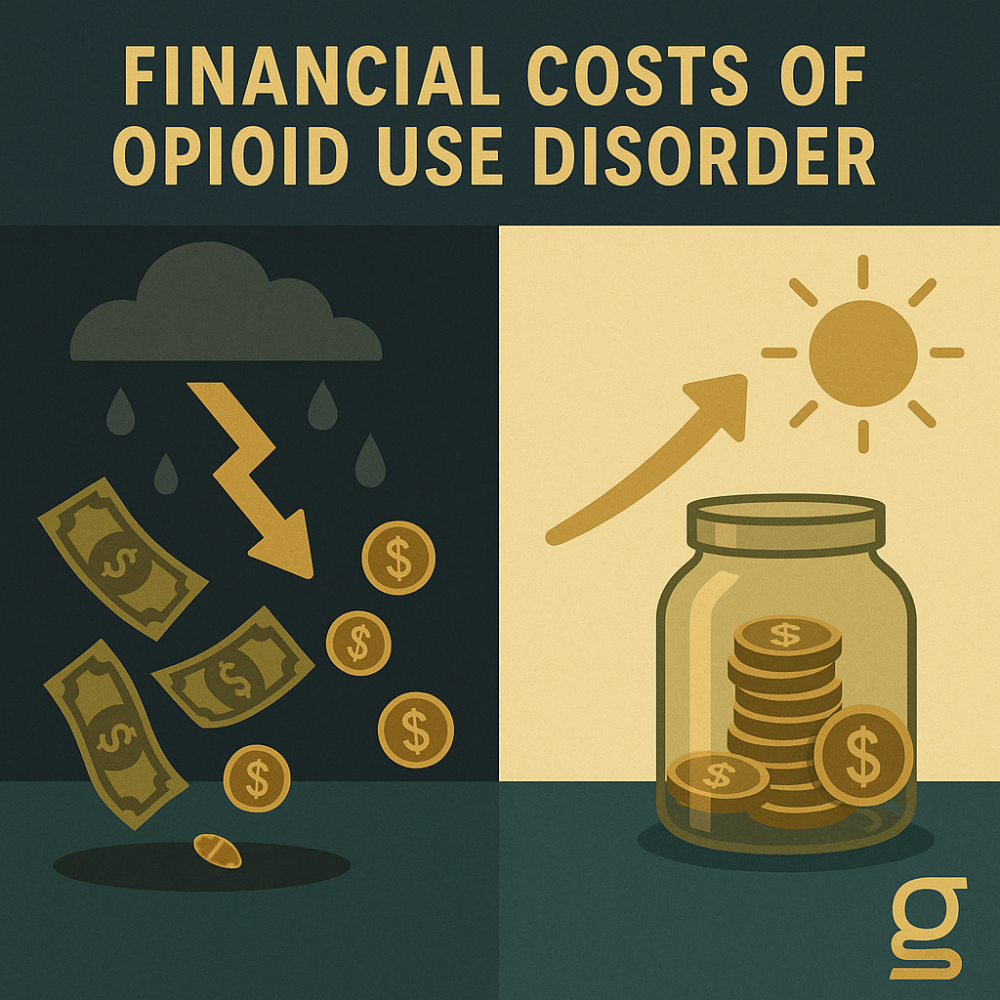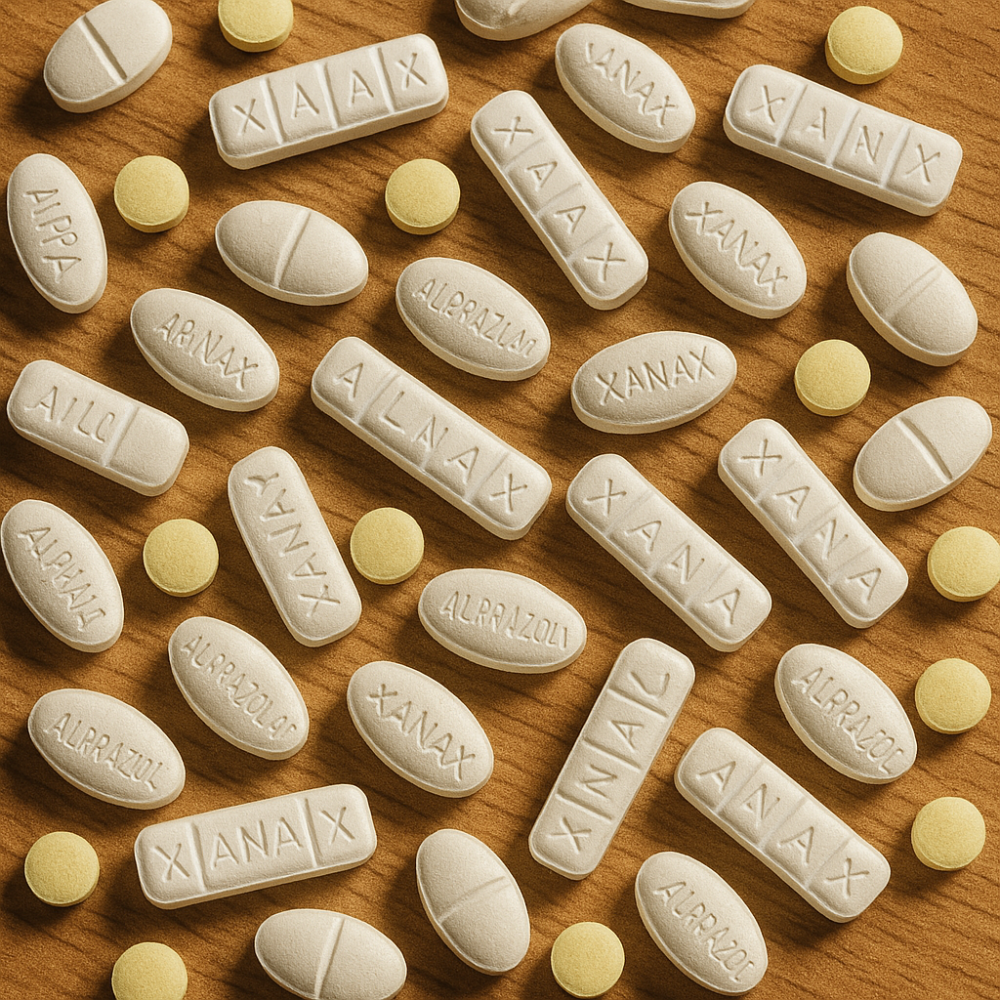Is the fear of withdrawal symptoms keeping you from recovery? While it is true that withdrawal from drugs or alcohol can cause serious symptoms, withdrawing under medical supervision is generally safe, effective, and more comfortable than you may think.
Detoxification, known as detox, is the process your body undergoes while ridding itself of drugs, alcohol, or other toxic substances. Detox is the first step in breaking your dependence on an addictive substance and regaining your health and quality of life.
If you are physically or mentally dependent on or addicted to drugs or alcohol, you will likely experience withdrawal symptoms once you stop taking the substance. By learning how addictive substances affect the brain, why withdrawal effects occur, and how medical detox can ease withdrawal, you will be less likely to fear the process.
How Do Addictive Substances Affect the Brain?
The American Society of Addiction Medicine (ASAM) defines addiction as a chronic disease “involving complex interactions among brain circuits, genetics, the environment, and an individual’s life experiences. People with addiction use substances or engage in behaviors that become compulsive and often continue despite harmful consequences.”1
Recognizing that addiction is a chronic disease, in 2013, the American Psychiatric Association (APA) updated the terminology for drug dependence or addiction to substance use disorder (SUD), which includes misuse of either drugs or alcohol.2 Although SUD is a chronic disease, it is highly treatable.
Drugs interact with the brain circuitry, making it difficult to stop using substances without professional guidance. Alcohol and mood-altering drugs interfere with the brain’s pleasure and reward system, triggering unnaturally high “feel good” chemicals. While chemicals like dopamine and serotonin are released naturally in response to a pleasant experience, addictive substances trigger a much higher level. Because the effect is so pleasurable, you have a powerful desire to repeat the experience.3
Over time your brain adapts to the presence of the addictive substance. Your pleasure response relies on the regular influx of drugs or alcohol. As the brain “rewires,” it demands increasingly higher doses of the substance to deliver the desired response. When your body begins to require higher doses, you have developed “tolerance,” which is the first step to dependence and addiction.4
When Do Withdrawal Side Effects Occur?
Once tolerance has taken hold, you will likely experience withdrawal symptoms if you stop taking the addictive substance. Symptoms occur as your brain, nervous system, and vital organs attempt to regain balance as they adjust to the sudden absence of the substance.
Withdrawal symptoms vary in severity and duration depending on the specific addictive substance and various factors, including:5
- How long you have used the substance
- How often you have used it
- The amount you typically use
- Whether you use other drugs or alcohol concurrently
- Your overall health
Detox Methods
There are several detox methods to choose from, including “cold turkey,” rapid detox, and medical detox, including tapering. Most experts agree that quitting cold turkey on your own is very dangerous, includes needless suffering, and has a high relapse rate.
Cold Turkey
Going cold turkey means abruptly stopping taking the addictive substance and dealing with the resulting side effects on your own or with minimal medical or non-medical support. We strongly advise against this option because it can lead to unexpected complications.
For example, cold turkey can be extremely dangerous if your brain and nervous system have adapted to alcohol, a benzodiazepine, or an opiate.6 Quitting an addictive substance, you have used long-term or at high doses also poses substantial risks, as side effects can be severe and even life-threatening.
When withdrawal effects from quitting cold turkey include intense cravings and extreme discomfort, you are considerably more likely to resume using the substance than to try to tough it out.
Rapid Detox
Rapid detox is performed under general anesthesia and occurs over a four-to-six-hour period. While your body is under sedation, doctors inject medications to flush the addictive substance from your body. A study published in the Journal of the American Medical Association (JAMA) found the “procedure to be associated with [three] potentially life-threatening adverse events.”7 Many other experts warn about the potential dangers of rapid detox.
The medical insurance company Aetna does not cover rapid detox, citing a lack of scientific evidence that the procedure is safe or effective.8 We do not perform rapid detox at Gallus.
Medical Detox
Medical detox provides round-the-clock medical supervision throughout the detox process. Medical professionals administer medications to relieve your symptoms and cravings and constantly monitor your vital signs for signs of distress.
Withdrawal effects vary for each person, but medical staff can manage or eliminate many of these effects through medication administration. You may receive medication to ease pain, nausea, vomiting, headache, diarrhea, or anxiety. Medications can also help manage more severe symptoms like depression, insomnia, hallucinations, or other psychiatric symptoms.
If you are detoxing from an opioid or benzodiazepine, your doctor may put you on a tapering schedule to avoid a severe reaction.
Tapering
Tapering is a medication withdrawal plan supervised by a doctor, where they gradually reduce the dose of the addictive substance over time. By decreasing the amount slowly, your body has time to adjust between dose adjustments, minimizing withdrawal symptoms and the potential for relapse.
Depending on the drug and your personal situation, tapering presents different challenges. One downside to tapering is that it may need to happen over a long time. In the past, that presented a problem as many rehab centers required patients to be completely free of addictive substances to enter a treatment program. Fortunately, that has now changed. Most rehab centers understand the benefits of tapering and will allow those still tapering off certain substances to begin treatment.
Why Medical Detox Is Your Safer Option
Withdrawing from drug or alcohol use can severely impact your physical and mental health. Moderate to severe withdrawal effects can cause extreme discomfort and possibly be life-threatening. Even mild withdrawal symptoms can be uncomfortable.
While moderate to severe withdrawal effects include a wide range of undesirable effects like nausea, headache, anxiety, disturbed sleep, and many other symptoms, some side effects can be dangerous.
For example, opioid withdrawal can include increased pain, tremors, rapid heart rate, blood pressure changes, and suicidal thoughts.9 If you are withdrawing from severe alcohol use, you may experience nightmares, rapid heart rate, tremors, high blood pressure, hallucinations, and psychosis.10
Doctors and other health professionals specializing in the detox process are on-site in quality medical detox centers. They understand what you are going through and support your physical and mental health throughout your stay. Detox staff constantly monitor your heart rate, blood pressure, respiratory rate, and body temperature and respond immediately to any adverse reactions. Medical staff also administers medications to reduce anxiety, lessen withdrawal effects, and manage cravings.
After you complete your medical detox program, staff will provide you with the resources you need to transition to a drug or alcohol rehabilitation program to continue your recovery.
Gallus Medical Detox
At Gallus Detox, we make sure our patients do not need to fear the withdrawal process. Our unique program, known as the Gallus Method, prioritizes our patients’ comfort and safety throughout the detox process. Clinical expertise and evidence-based protocols enable us to deliver a treatment plan that includes medication management while avoiding cross-addiction.
Our Accelerated Micro Induction Detox Protocol is especially beneficial for those seeking to detox from opioids. Unlike some detox centers, we immediately administer medication upon patient admission to ensure they do not experience needless discomfort. Evaluations of patient outcomes after completing the Gallus program using the accelerated protocol find a significant reduction in withdrawal symptoms and a shorter length of stay. Our patients also speak to the quality of care and effectiveness of the Gallus Method.
We understand how the fear of withdrawal keeps so many from taking the first essential step to recovery. At Gallus, we promise each patient they have our utmost respect for taking that courageous first step. We aim to make your journey more comfortable than you can imagine.
Don’t let fear hold you back from living your best life. Contact Gallus today for immediate help.
Sources
- https://www.asam.org/docs/default-source/quality-science/asam’s-2019-definition-of-addiction-(1).pdf?sfvrsn=b8b64fc2_2
- https://archives.drugabuse.gov/publications/media-guide/science-drug-use-addiction-basics
- https://dana.org/article/how-addiction-hijacks-our-reward-system/
- https://archives.drugabuse.gov/publications/media-guide/science-drug-use-addiction-basics
- https://www.ncbi.nlm.nih.gov/books/NBK310652/
- https://www.verywellmind.com/what-are-the-risks-of-quitting-cold-turkey-21813
- https://jamanetwork.com/journals/jama/fullarticle/201451
- https://www.aetna.com/cpb/medical/data/300_399/0317.html#:~:text=Aetna%20considers%20ultra%20rapid%20detoxification%20%28UROD%29%20experimental%20and,in%20long-term%20relapse%20prevention%20treatment%20of%20opiate%20addiction
- https://www.mayoclinic.org/diseases-conditions/prescription-drug-abuse/in-depth/tapering-off-opioids-when-and-how/art-20386036#:~:text=Signs%20and%20symptoms%20of%20withdrawal%20include%3A%201%20Runny,twitching%2010%20Rapid%20heart%20rate%20More%20items…%20
- https://www.verywellmind.com/alcohol-withdrawal-symptoms-quiz-69485


 Steve B
Steve B 

 Casey Wilson
Casey Wilson